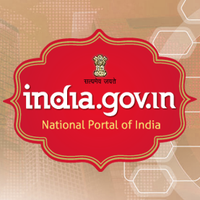Tariff Tango: The High-Stakes Dance of Trade Negotiations
April 3, 2025, 10:14 am

Location: United States, District of Columbia, Washington
Employees: 10001+
Founded date: 2000

Location: United Kingdom, Wales, Newport, Wales
Employees: 1001-5000
Founded date: 1954
In the world of international trade, the stakes are high, and the players are bold. The recent discussions between UK Prime Minister Keir Starmer and US President Donald Trump have set the stage for a dramatic trade showdown. With the clock ticking towards Trump’s anticipated "Liberation Day," the air is thick with tension and uncertainty.
Starmer and Trump recently engaged in what was described as "productive" talks about a potential UK-US trade deal. This meeting is a glimmer of hope for the UK, which has been navigating the choppy waters of post-Brexit trade since leaving the European Union. The UK has been on a quest for a robust trade agreement with the US, a lifeline that could soften the blows of impending tariffs.
The backdrop is a complex tapestry of economic interests. The UK seeks to bolster its economy while Trump dangles the promise of a "great" deal. However, the path to this agreement is fraught with challenges. The UK has opted not to retaliate against existing tariffs on its steel industry, a move that could be seen as a strategic gamble. The hope is that by showing restraint, the UK can foster goodwill and secure a favorable deal.
But what does "productive" really mean in the realm of trade negotiations? It’s a term that can mean many things. It can signal progress, or it can be a diplomatic way of saying that the real work is just beginning. The talks between Starmer and Trump are just the tip of the iceberg. Beneath the surface lies a complex web of negotiations involving various sectors and interests.
As the deadline looms, Trump is preparing to unveil a new wave of tariffs. His promise to be "kind" with these tariffs raises eyebrows. In the world of trade, kindness is often a double-edged sword. While it may suggest leniency, it can also mask the harsh realities of economic competition. Trump’s administration has been known for its aggressive stance on trade, and this latest move is no exception.
The uncertainty surrounding these tariffs has sent shockwaves through global markets. Investors are on edge, bracing for the impact of potential tariffs that could affect nearly all US trading partners. The term "reciprocal tariffs" has become a buzzword, signaling a tit-for-tat approach that could escalate tensions further. The prospect of global tariffs reaching as high as 20 percent is a chilling thought for many economies.
In this high-stakes game, countries are scrambling to protect their interests. Reports indicate that nations like India and Vietnam are already taking steps to minimize their exposure to US tariffs. India is considering lowering some duties, while Vietnam is slashing tariffs on a range of goods. This is a classic case of survival of the fittest in the world of trade.
The looming tariffs are not just a concern for foreign nations; they are also raising fears of a recession in the US. Analysts are sounding alarms, with Goldman Sachs increasing the probability of a recession. The interconnectedness of global economies means that a downturn in one area can ripple across the globe. The "Dirty 15," a term used to describe countries with persistent trade imbalances with the US, are particularly vulnerable.
As the trade negotiations unfold, the implications extend beyond economics. They touch on national security, diplomatic relations, and the very fabric of international cooperation. The EU, for instance, is preparing to respond firmly to Trump’s tariffs while remaining open to compromise. This balancing act is emblematic of the broader challenges facing global trade.
In the midst of this turmoil, the UK is trying to carve out its own path. Starmer’s discussions with Trump are a crucial part of this strategy. The UK’s desire for a trade deal is not just about economics; it’s about positioning itself as a key player on the global stage. The stakes are high, and the outcome of these negotiations could shape the future of UK-US relations for years to come.
As the clock ticks down to Trump’s "Liberation Day," the world watches with bated breath. Will the UK secure a favorable trade deal, or will it find itself caught in the crossfire of escalating tariffs? The answers remain elusive, but one thing is clear: the dance of trade negotiations is far from over. The music may change, but the rhythm of diplomacy continues. In this intricate ballet, every step counts, and the consequences of missteps can be dire. The future of trade hangs in the balance, and the world is waiting to see who will lead and who will follow.
Starmer and Trump recently engaged in what was described as "productive" talks about a potential UK-US trade deal. This meeting is a glimmer of hope for the UK, which has been navigating the choppy waters of post-Brexit trade since leaving the European Union. The UK has been on a quest for a robust trade agreement with the US, a lifeline that could soften the blows of impending tariffs.
The backdrop is a complex tapestry of economic interests. The UK seeks to bolster its economy while Trump dangles the promise of a "great" deal. However, the path to this agreement is fraught with challenges. The UK has opted not to retaliate against existing tariffs on its steel industry, a move that could be seen as a strategic gamble. The hope is that by showing restraint, the UK can foster goodwill and secure a favorable deal.
But what does "productive" really mean in the realm of trade negotiations? It’s a term that can mean many things. It can signal progress, or it can be a diplomatic way of saying that the real work is just beginning. The talks between Starmer and Trump are just the tip of the iceberg. Beneath the surface lies a complex web of negotiations involving various sectors and interests.
As the deadline looms, Trump is preparing to unveil a new wave of tariffs. His promise to be "kind" with these tariffs raises eyebrows. In the world of trade, kindness is often a double-edged sword. While it may suggest leniency, it can also mask the harsh realities of economic competition. Trump’s administration has been known for its aggressive stance on trade, and this latest move is no exception.
The uncertainty surrounding these tariffs has sent shockwaves through global markets. Investors are on edge, bracing for the impact of potential tariffs that could affect nearly all US trading partners. The term "reciprocal tariffs" has become a buzzword, signaling a tit-for-tat approach that could escalate tensions further. The prospect of global tariffs reaching as high as 20 percent is a chilling thought for many economies.
In this high-stakes game, countries are scrambling to protect their interests. Reports indicate that nations like India and Vietnam are already taking steps to minimize their exposure to US tariffs. India is considering lowering some duties, while Vietnam is slashing tariffs on a range of goods. This is a classic case of survival of the fittest in the world of trade.
The looming tariffs are not just a concern for foreign nations; they are also raising fears of a recession in the US. Analysts are sounding alarms, with Goldman Sachs increasing the probability of a recession. The interconnectedness of global economies means that a downturn in one area can ripple across the globe. The "Dirty 15," a term used to describe countries with persistent trade imbalances with the US, are particularly vulnerable.
As the trade negotiations unfold, the implications extend beyond economics. They touch on national security, diplomatic relations, and the very fabric of international cooperation. The EU, for instance, is preparing to respond firmly to Trump’s tariffs while remaining open to compromise. This balancing act is emblematic of the broader challenges facing global trade.
In the midst of this turmoil, the UK is trying to carve out its own path. Starmer’s discussions with Trump are a crucial part of this strategy. The UK’s desire for a trade deal is not just about economics; it’s about positioning itself as a key player on the global stage. The stakes are high, and the outcome of these negotiations could shape the future of UK-US relations for years to come.
As the clock ticks down to Trump’s "Liberation Day," the world watches with bated breath. Will the UK secure a favorable trade deal, or will it find itself caught in the crossfire of escalating tariffs? The answers remain elusive, but one thing is clear: the dance of trade negotiations is far from over. The music may change, but the rhythm of diplomacy continues. In this intricate ballet, every step counts, and the consequences of missteps can be dire. The future of trade hangs in the balance, and the world is waiting to see who will lead and who will follow.
